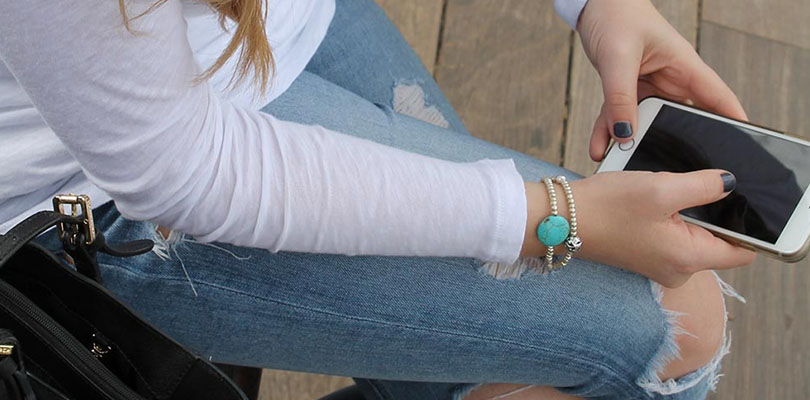Engraved Medical IDs vs. Digital Medical IDs
Did you know that 95 percent of first responders are trained to look for a medical ID on a person that they are assisting during an emergency?
Unfortunately, the same cannot be said for digital medical IDs, which are available on most cell/smartphones. These IDs are growing in popularity, and you might even be tempted to switch. After all, you always have your phone on you, right?
Not so fast.
First responders will not go rooting through your pockets or bag trying to find your phone. Their first instinct is to look at your wrist or your neckline. "When it's at that point where an individual can't provide any info, it's too late to be digging around the pocket for a phone. We resort to our own step by step assessment and proceed with the appropriate treatment", says Rob Nathan, a Paramedic from New York.
Digital medical IDs on our cellphones definitely serve some purposes (extensive contact information, for example), but I would argue that they don’t (yet) come close to beating the time-tested traditional engraved medical ID worn as jewelry.
Why Consider Going With an Engraved Medial ID
Here are five reasons why I think you should consider a medical ID bracelet or necklace as your first choice:
- No battery, no worries – you never have to worry about charging your jewelry, keeping batteries full, or panic about having enough juice to make that last call when you need to the most. Medical ID jewelry is with you always, provided you remember to put it on, or better yet, never take it off.
- Your guardian angel – there’s no compelling reason why you shouldn’t wear your medical ID at all times, except for moments where you are keeping it clean and maintaining its aesthetics. A medical ID only serves its purpose if it’s with you at the moment you need it the most. The when and how are the variables. Doctors like Charles Ericsson, M.D., Professor of Infectious Disease UT Medical School, Houston says “Being without a medical ID in an emergency could lead to serious consequences."
- No passwords or access issues – modern access to cell phones has become so secure that you often need to use your face or fingerprint to get any access to them. In times when every second may be the difference between life and death, glancing at an engraved piece of jewelry is far quicker than attempting to gain access to a phone.
There are also privacy concerns with a mobile medical ID. Anyone with brief physical access to your device can easily see your personal medical information, such as the medications that you’re taking. "The whole idea of (a digital) medical ID is to make the information quick and easy to find for those helping you in an emergency, but that means it’s also quick and easy to find for those with less honorable intent," writes Jim Tanous of TekRevue.
- Awareness – the stigma of wearing a piece of jewelry that identifies a particular condition or set of instructions useful in an emergency is a thing of the past. Influencers from across the globe now take to social media to share their story of living with a particular condition, they unite as a collective, helping drive awareness to others.
The same goes for organizations like the Invisible Disabilities Association and the Marfan Foundation that recognize medical IDs as a tool to drive awareness and support for their communities.
In emergency situations, by not wearing a medical ID on your person, you are risking misdiagnosis, wasting precious time and perhaps, ultimately, your life.
- Medics aren’t detectives – there’s something to be said for making someone else’s job easier, and when that job is potentially saving your life, wouldn’t you sleep better at night knowing you went that helped not hindered?
And, why would you take the risk of paramedics not being able to locate and access important medical information instantly doing as they’ve been trained?
Sure, your newest cellphone may have the latest technology, hours of battery life, and gigabytes of storage. But unlike your phone, medical ID jewelry is always on, won’t short-circuit in water, and will always serve their purpose of keeping you safe.
That said, taking any available measure and precautions are always better than nothing at all. A digital medical ID, like the iPhone’s medical ID, is a good complement to your medical ID jewelry. David Fore, a former medic and flight coordinator, says that your “best bet is a medical alert bracelet or necklace. Second best is an individual present who knows you. A wallet card is good, but due to time element, it usually is first seen in ER."
The Takeaway
Do you save your personal medical information on your mobile phone and rely on it during an emergency? If you do, then I challenge you to think again. Ask yourself whether you truly have the best protection available.
